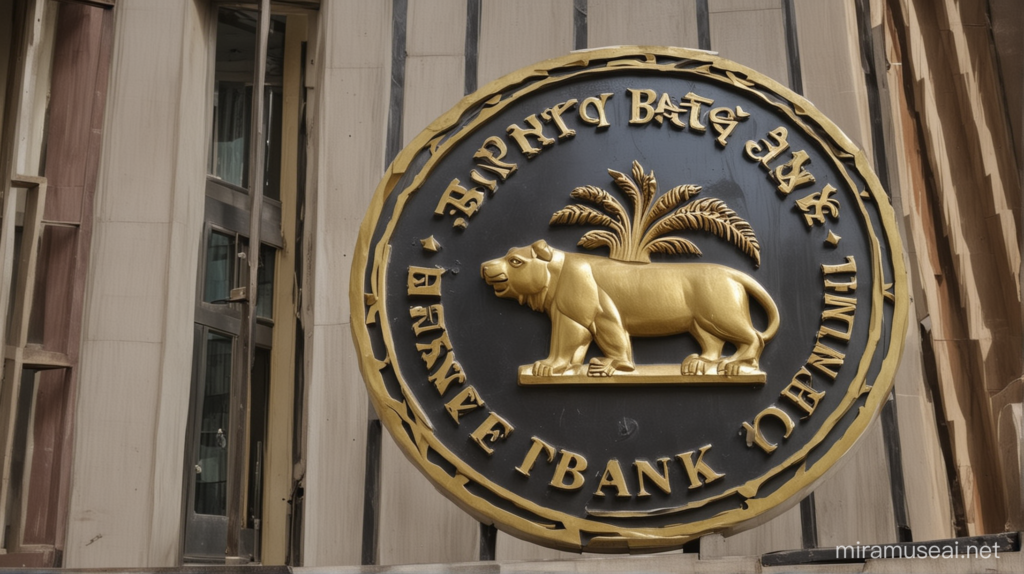Introduction:
In the complex tapestry of India’s economic landscape, one institution stands as a pillar of stability and growth: the Reserve Bank of India (RBI). Established in 1935, the RBI has evolved into a central force driving monetary policy, financial regulation, and economic development. In this blog, we delve into the role and significance of the RBI, exploring its functions, responsibilities, and enduring impact on the Indian economy.
1. Historical Evolution:
The origins of the RBI can be traced back to the recommendations of the Hilton Young Commission in 1926, which highlighted the need for a central bank in India to regulate the country’s monetary and banking system. In response, the Reserve Bank of India Act was passed in 1934, paving the way for the establishment of the RBI on April 1, 1935. Since its inception, the RBI has played a pivotal role in shaping India’s economic trajectory through periods of growth, crisis, and transformation.
2. Monetary Policy and Price Stability:
One of the primary functions of the RBI is the formulation and implementation of monetary policy, aimed at maintaining price stability and promoting sustainable economic growth. Through tools such as interest rate adjustments, open market operations, and reserve requirements, the RBI seeks to manage inflation, stabilize the currency, and support overall macroeconomic stability. Its efforts in this regard are crucial for fostering investor confidence, controlling inflationary pressures, and sustaining long-term economic prosperity.
3. Banking Regulation and Financial Stability:
As the regulator and supervisor of India’s banking sector, the RBI plays a vital role in ensuring the safety, soundness, and stability of financial institutions. Through prudential regulations, oversight mechanisms, and supervision frameworks, the RBI works to mitigate systemic risks, prevent financial crises, and safeguard depositor interests. Its proactive approach to banking regulation is essential for maintaining the integrity and resilience of the financial system, especially in the face of evolving challenges and vulnerabilities.
4. Currency Management and Issuance:
The RBI holds the exclusive authority to issue currency notes in India, a responsibility entrusted to it under the Reserve Bank of India Act. In addition to managing the production, distribution, and circulation of currency, the RBI also oversees currency-related functions such as currency exchange, demonetization, and currency redesign. By ensuring the availability and integrity of the nation’s currency supply, the RBI plays a crucial role in facilitating economic transactions and preserving monetary stability.
5. Developmental Initiatives and Financial Inclusion:
Beyond its regulatory and monetary functions, the RBI is actively involved in promoting financial inclusion and fostering inclusive growth across the country. Through initiatives such as priority sector lending, financial literacy programs, and microfinance regulations, the RBI strives to expand access to financial services, particularly among marginalized and underserved communities. By empowering individuals and businesses with access to credit, savings, and payment systems, the RBI contributes to the broader goals of poverty alleviation and economic empowerment.
6. International Engagement and Collaboration:
In an increasingly interconnected global economy, the RBI plays an active role in international forums and collaborations aimed at promoting financial stability and cooperation. As a member of organizations such as the International Monetary Fund (IMF), the Bank for International Settlements (BIS), and the Financial Stability Board (FSB), the RBI engages in dialogue, knowledge sharing, and policy coordination with its counterparts worldwide. Such international engagement enhances India’s standing in the global financial community and facilitates the exchange of best practices and expertise.
Conclusion:
The Reserve Bank of India occupies a central position in India’s economic landscape, serving as the guardian of monetary stability, financial integrity, and economic development. Through its multifaceted functions and responsibilities, the RBI plays a critical role in shaping the country’s economic trajectory, fostering growth, stability, and resilience. As India continues its journey towards prosperity and progress, the RBI remains steadfast in its commitment to safeguarding the nation’s economic well-being and advancing the collective interests of its citizens.






